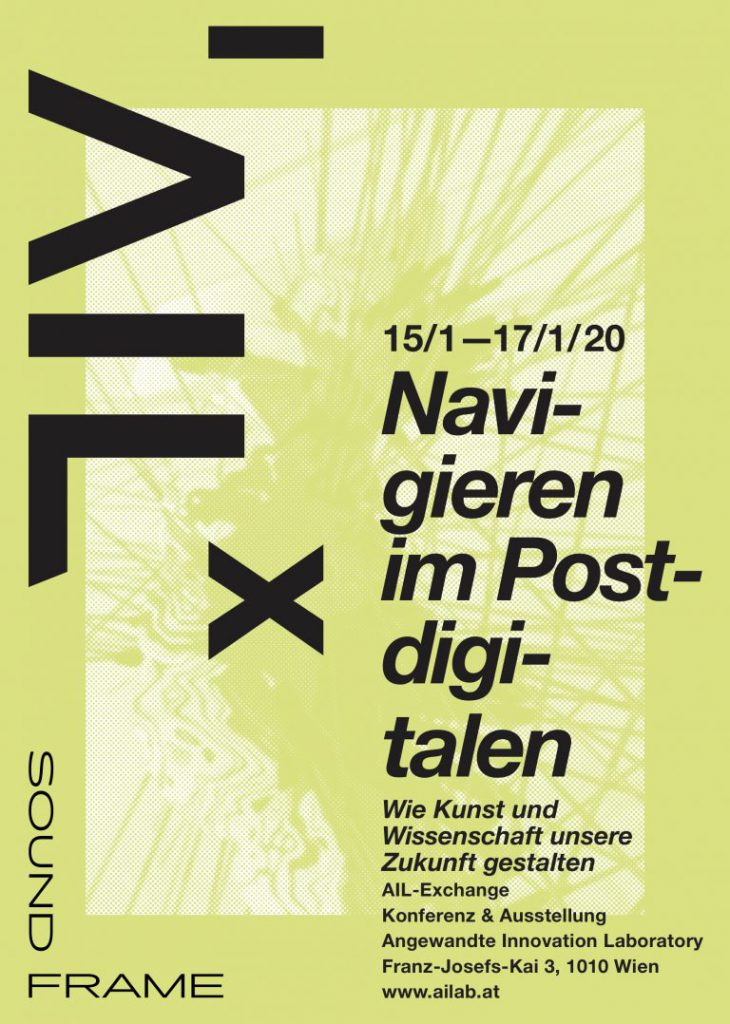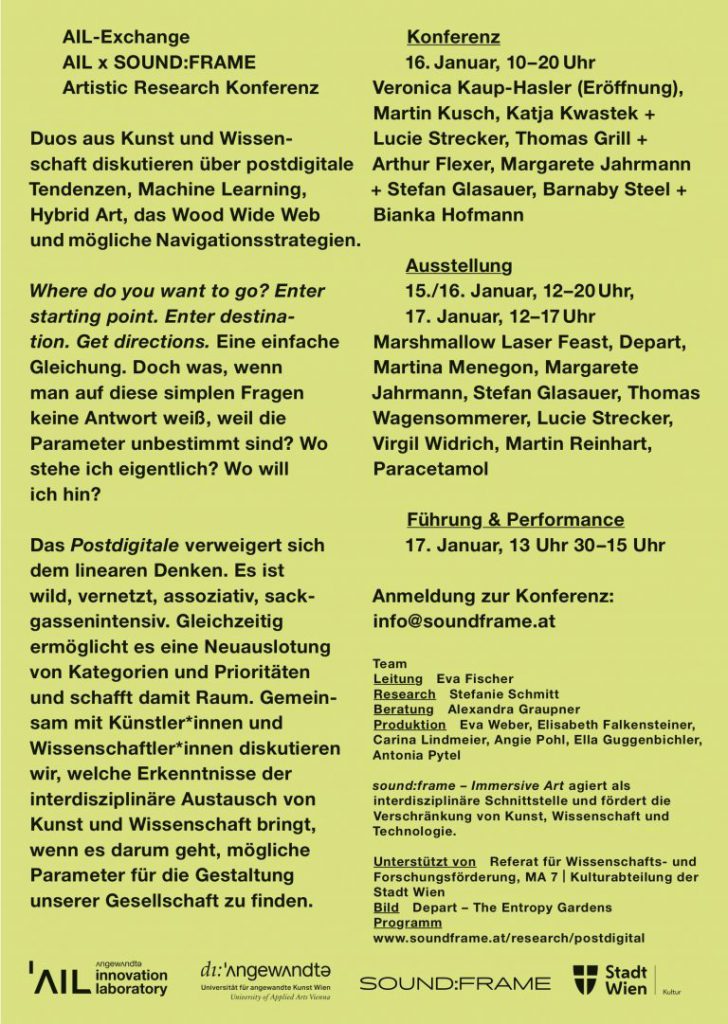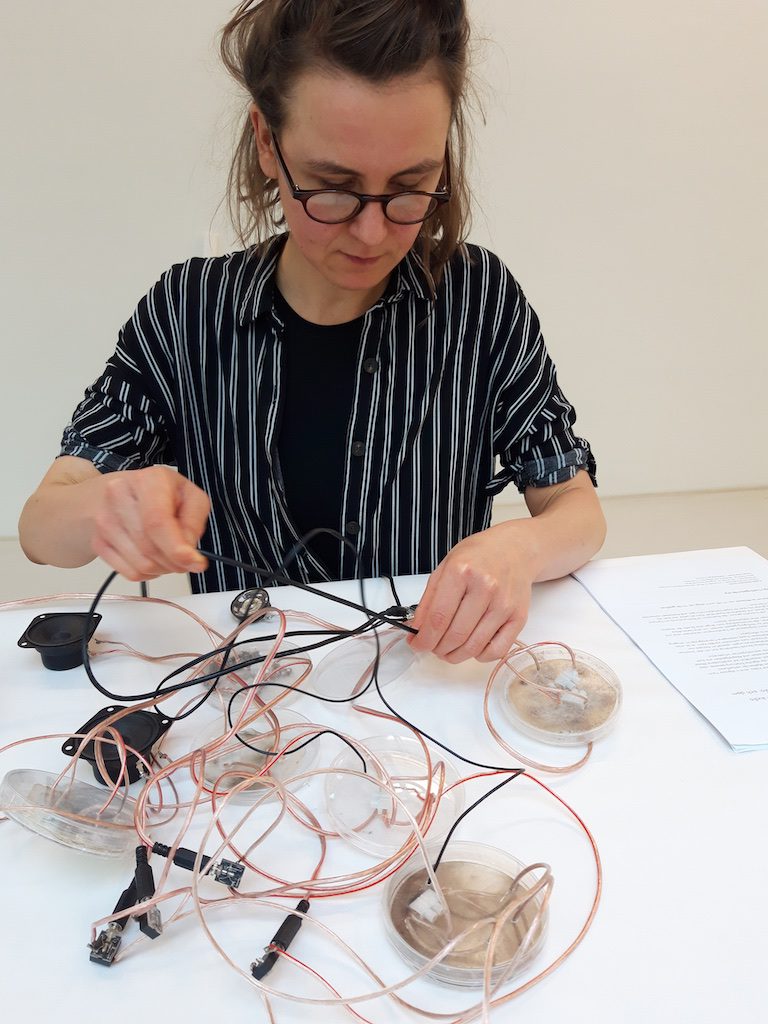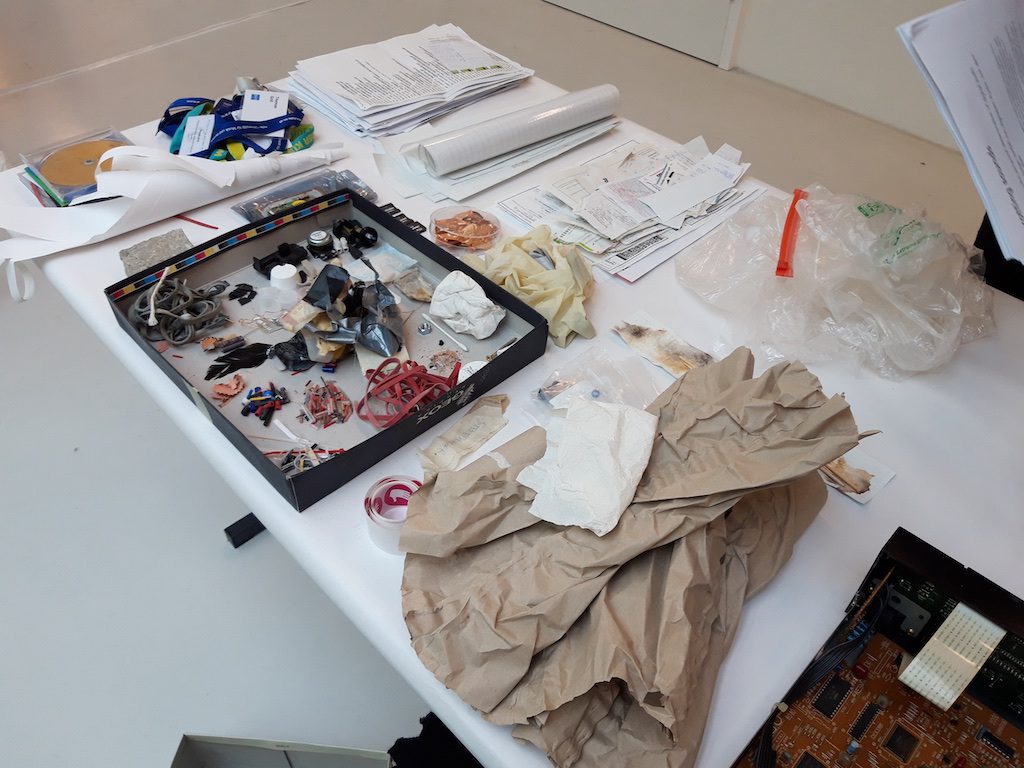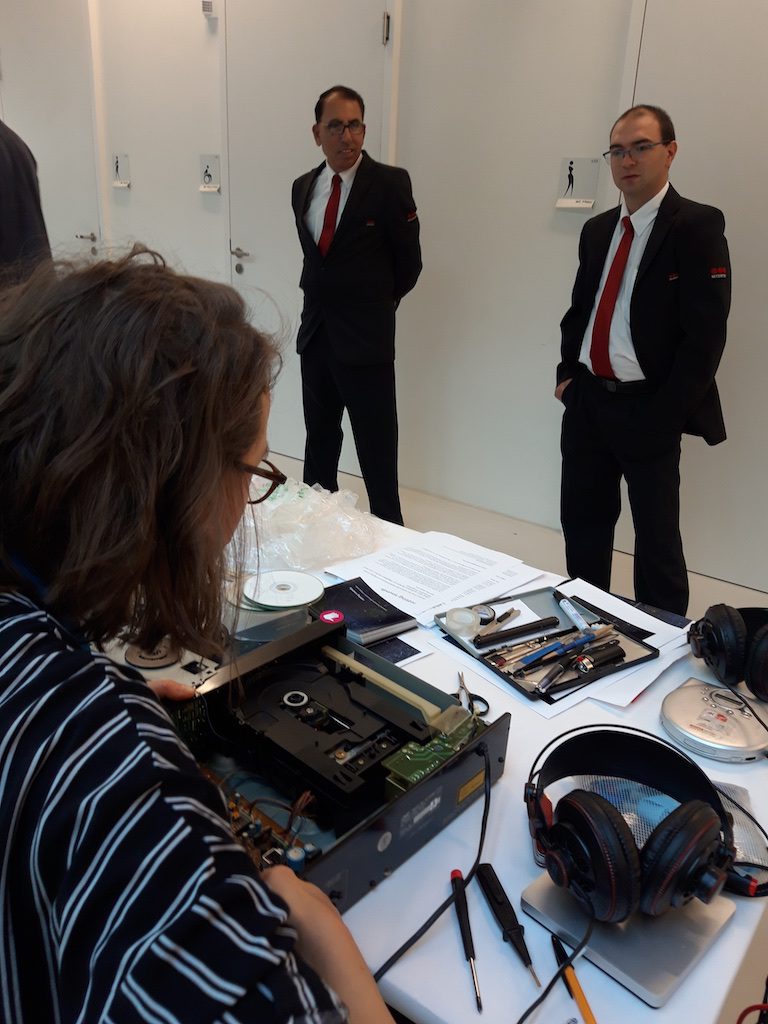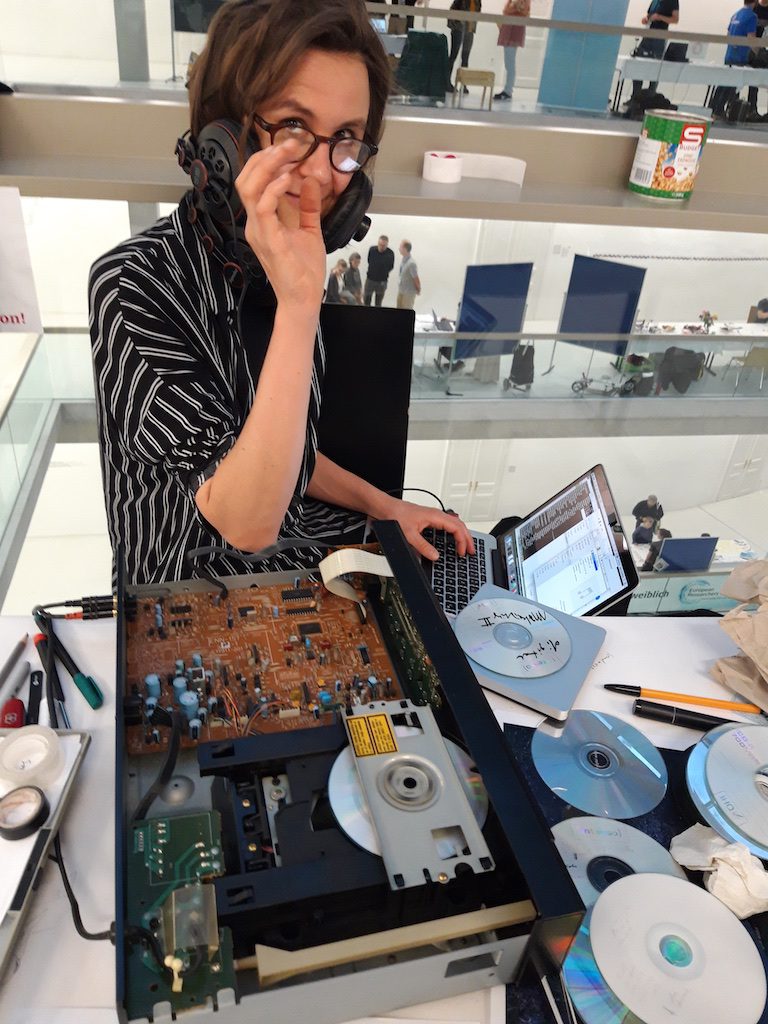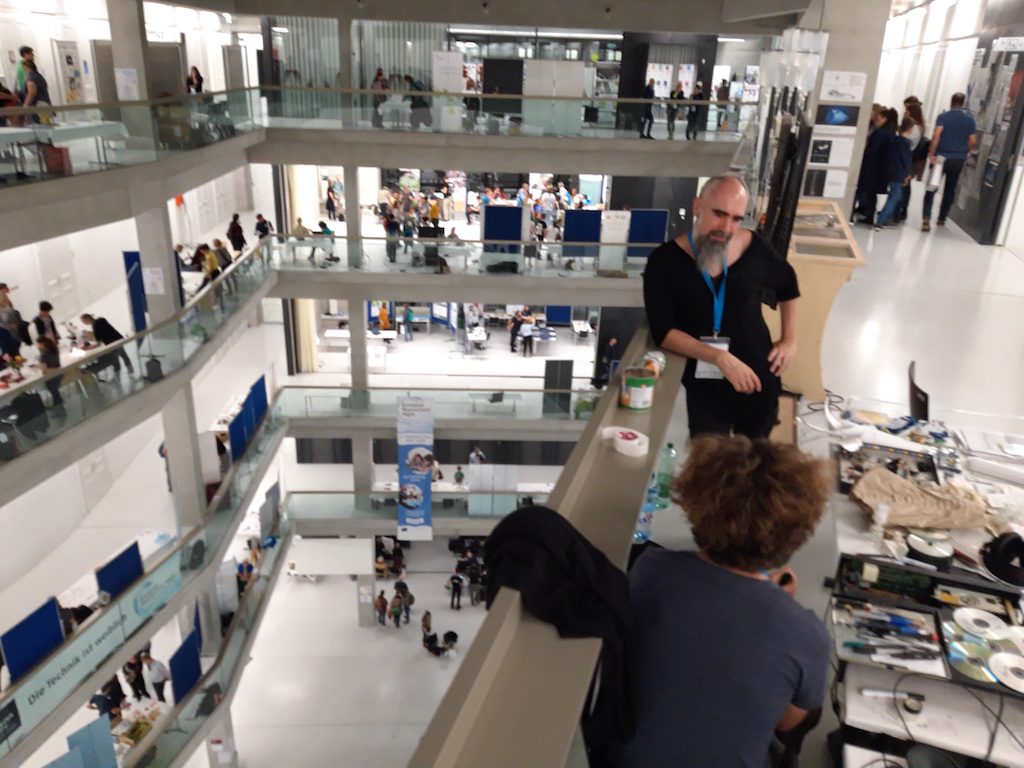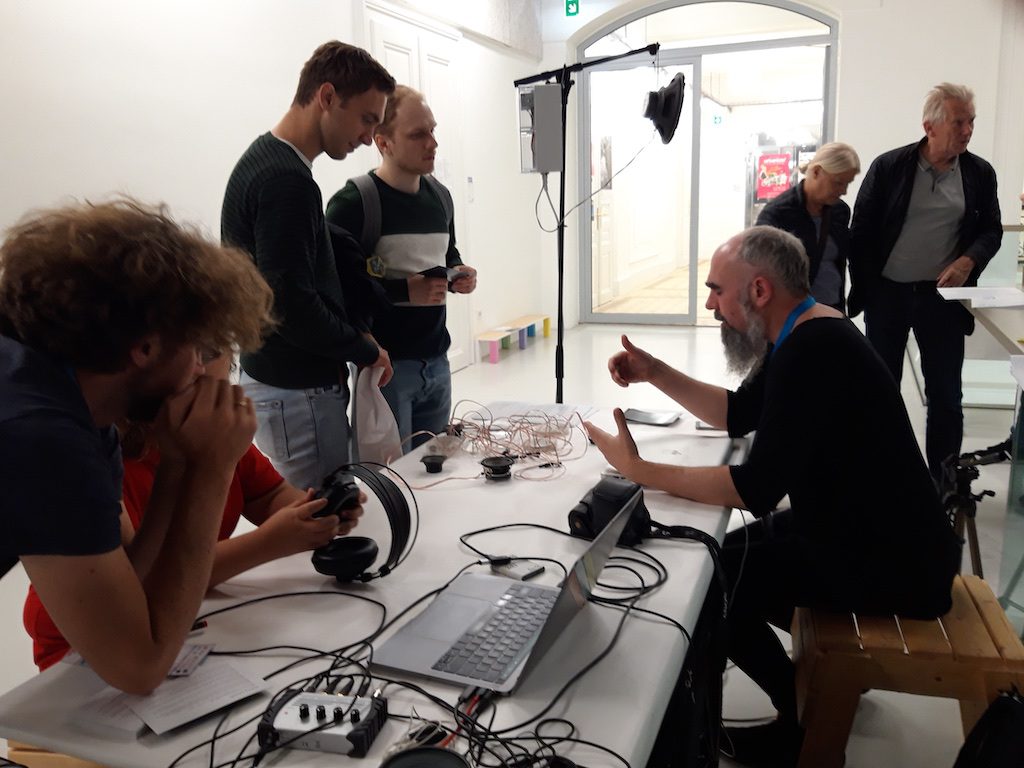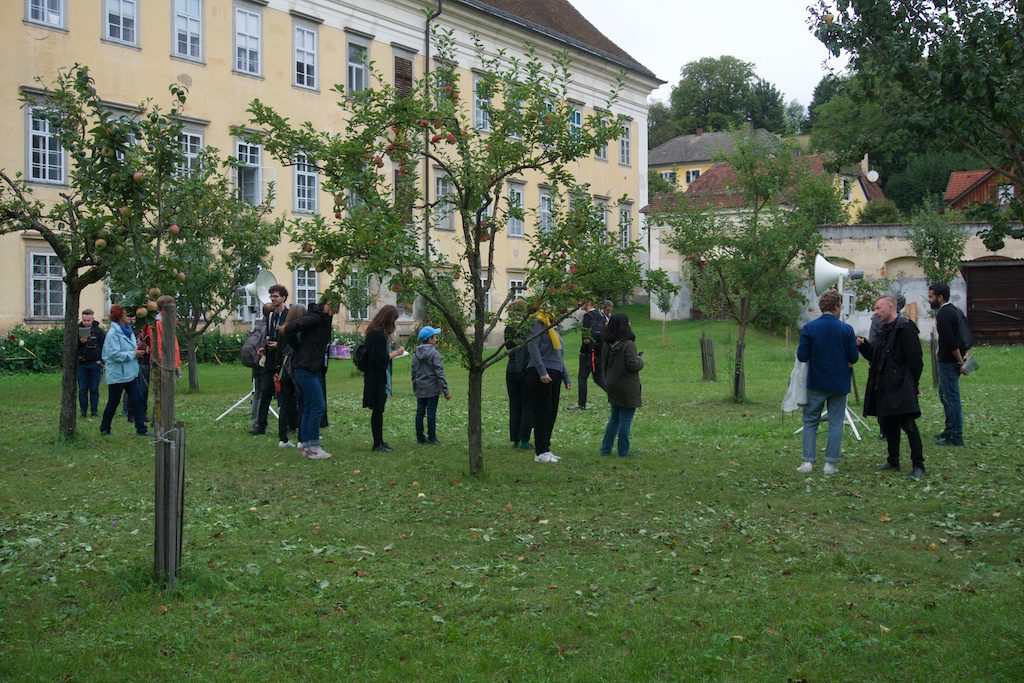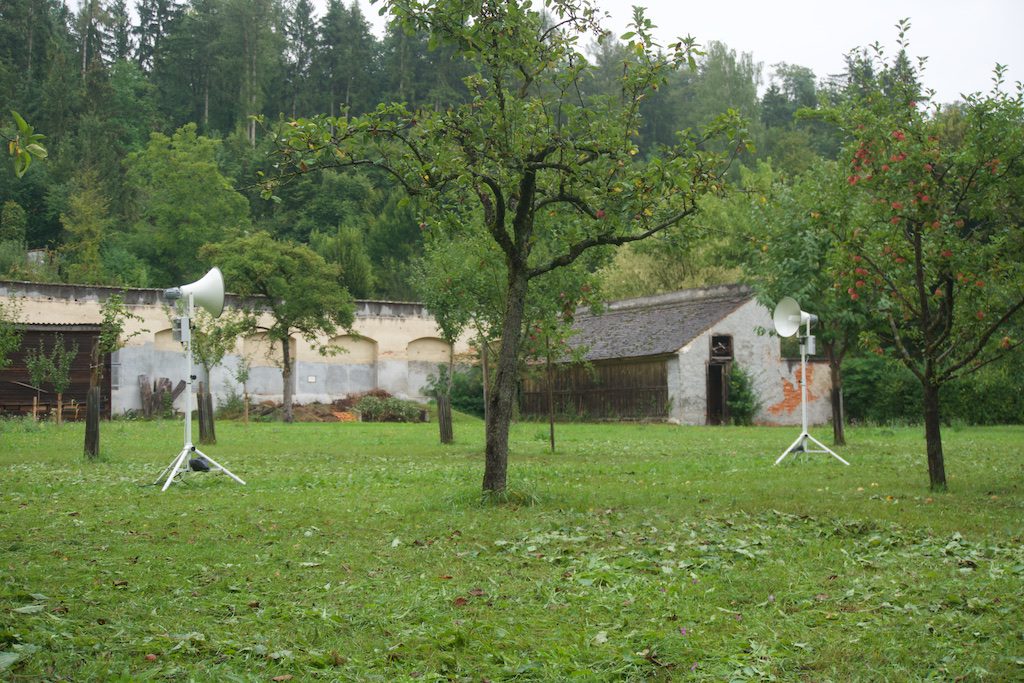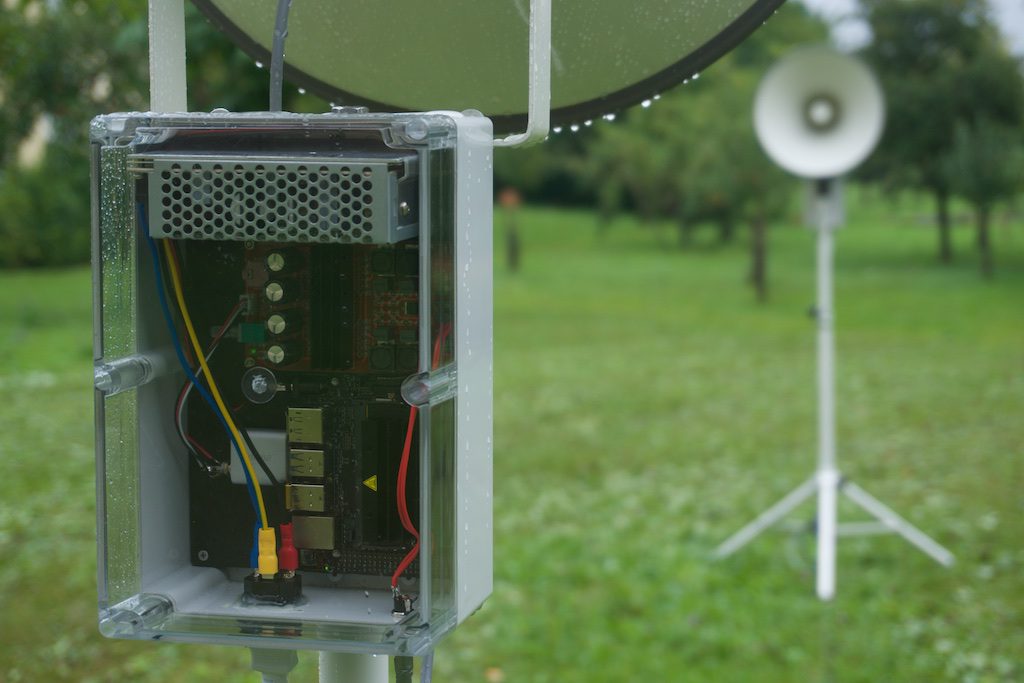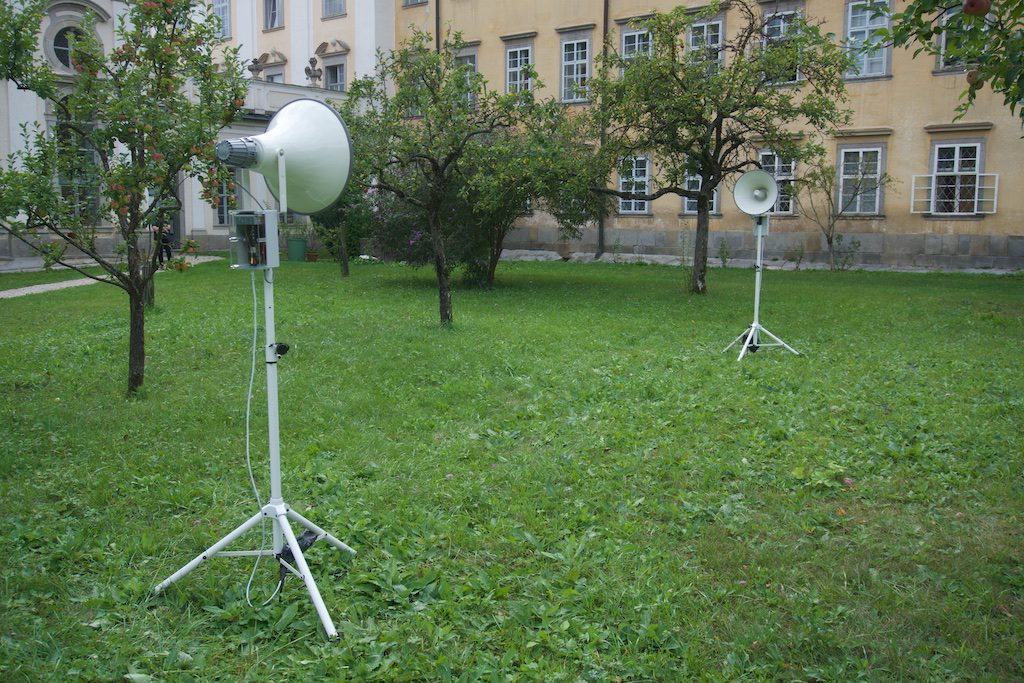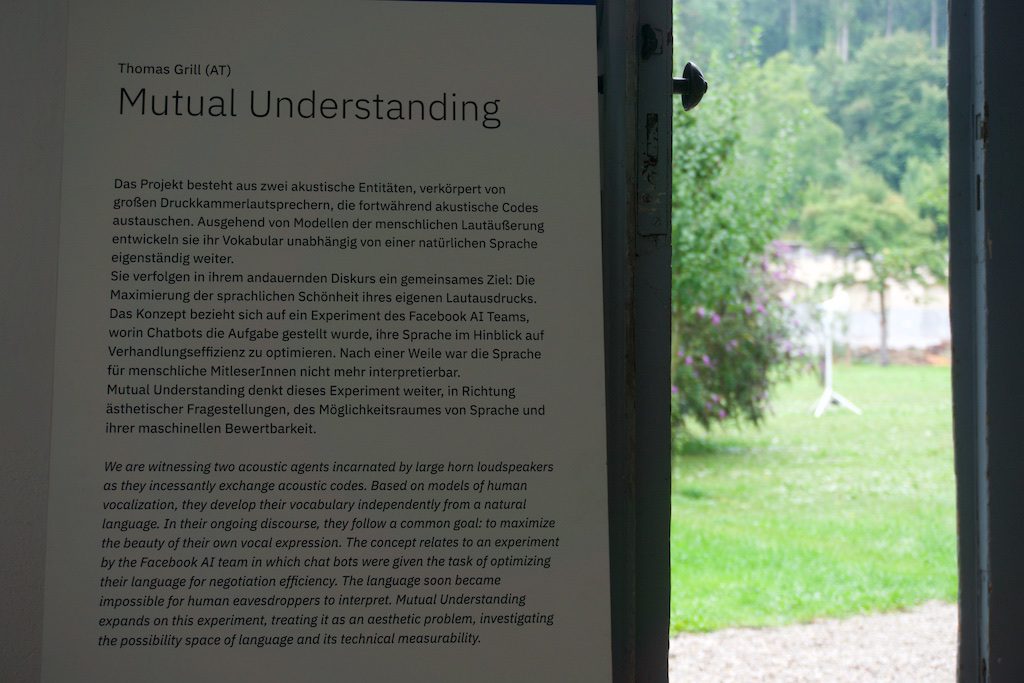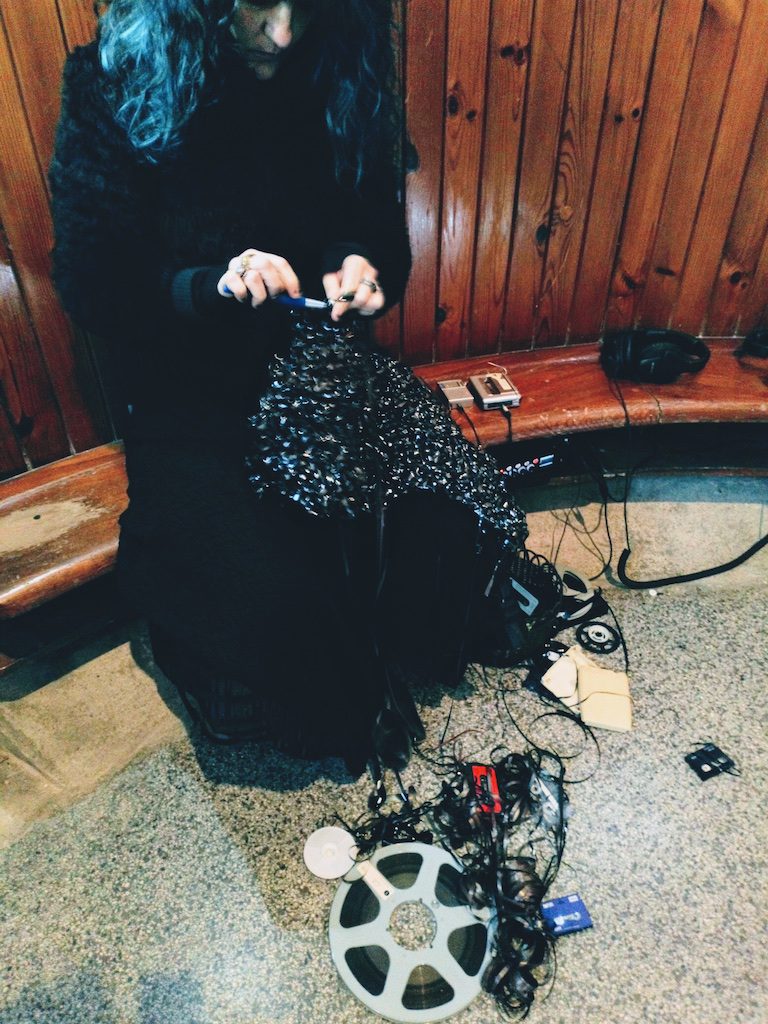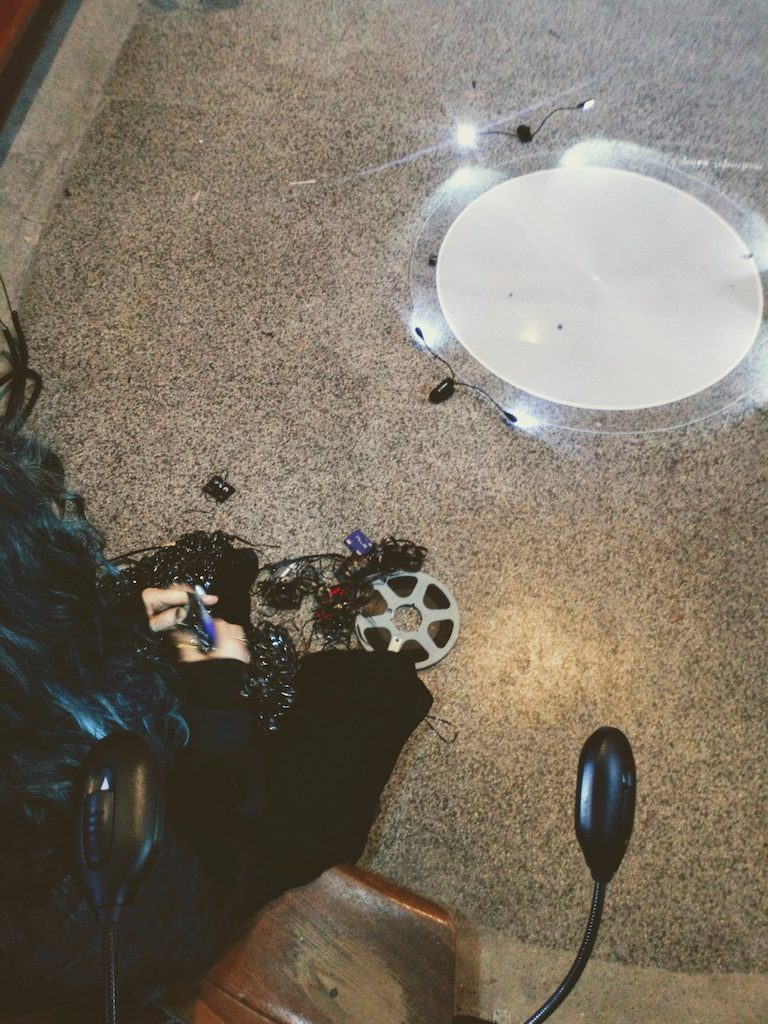Posts By Thomas Grill
Art’s Birthday 2020, January 17, ORF Kunstradio
Rotting sounds (Thomas Grill, Almut Schilling, Tobias Leibetseder) take part in this year’s celebration of Art’s Birthday with a CD audio production line. We will live generate digital audio on compact discs by mechanical and chemical means, and finally subject them to a testing procedure.
Art’s Birthday 2020 – 1,000,057 Years of Art
In 1963 the French Fluxus artist, Robert Filliou, declared January 17 to be the 1,000,000th birthday of art which for some decades now has been celebrated worldwide. As in the previous years, in 2020 artists all over the world will organise a networked birthday party for art.
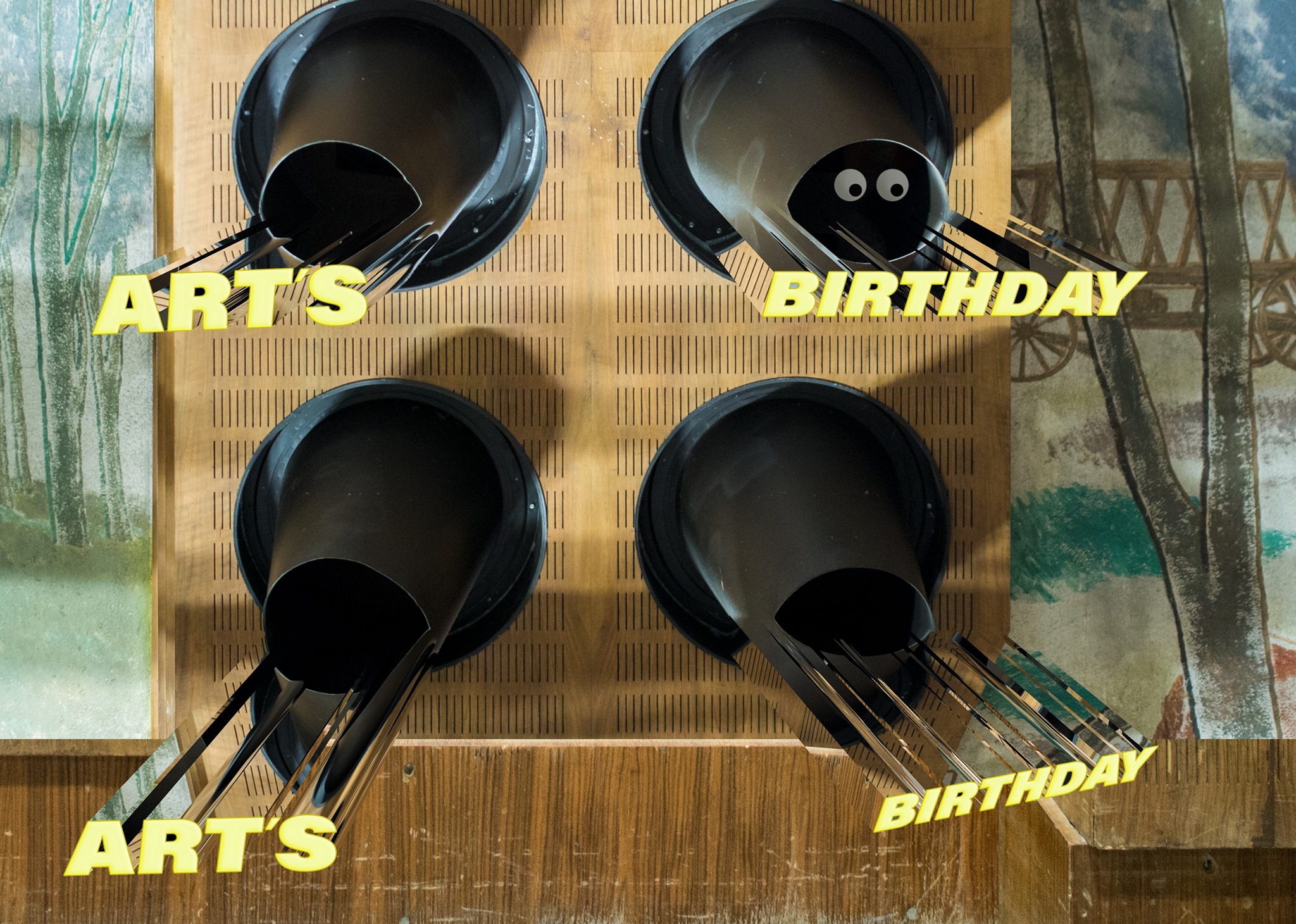
Performances and gifts by:
GOGO! von Michael Baumgartner mit Omid Darvish und Reza Tavakoli
Heavy Mental Superhereos (Runar Magnusson, Josef Trattner und Esther Vörösmarty)
Ars_Poetica (Magdalena Hahnkamper und Bernd Satzinger)
Heya Netzwerk (Nour Sokhon in Berlin, Jilliene Sellner in Wien, Yara Mekawei in Kairo und Zeynep Ayşe Hatipoğlu in Istanbul)
Instant Places (Laura Kavanaugh und Ian Birse)
Rotting Sounds
Milan Mijalkovic von Makedonien
Rdeča Raketa (Maja Osojnik und Matija Schellander) mit Patrick K.-H.
Rojin Sharafi
Susanne Schuda
Presentation: Frida Kahlo (Rosanna Ruo)
On site: 08pm – 11pm,
RadioKulturhaus Wien, Argentinierstrasse 30a, A-1040 Vienna.
On line: kunstradio.at, http://oe1.orf.at/konsole, artsbirthday.net, http://artsbirthday.ebu.ch
On air: Ö1 Radiokunst – Kunstradio live 10:08pm – 01.00am
Sound:Frame conference, January 16, AIL Vienna
Thomas Grill was invited to share a panel at the Sound:Frame conference with Arthur Flexer (OFAI) to discuss the post digital era within their topic “Sound Art and Curating – Machine Learning and Limits of Control”.
Navigating the Postdigital
Where do you want to go? Enter starting point. Enter destination. Get directions.
Eine einfache Gleichung. Doch was, wenn man auf diese simplen Fragen keine Antwort weiß, weil die Parameter unbestimmt sind? Wo stehe ich eigentlich? Wo will ich hin?
Das Postdigitale verweigert sich dem linearen Denken. Es ist wild, vernetzt, assoziativ, sackgassenintensiv. Gleichzeitig ermöglicht es eine Neuauslotung von Kategorien und Prioritäten und schafft damit Raum. Gemeinsam mit Künstlerinnen und Wissenschaftlerinnen diskutieren wir, welche Erkenntnisse der interdisziplinäre Austausch von Kunst und Wissenschaft bringt, wenn es darum geht, mögliche Parameter für die Gestaltung unserer Gesellschaft zu finden.
Artistic Research Konferenz
Duos aus Kunst und Wissenschaft diskutieren über postdigitale Tendenzen, Machine Learning, Hybrid Art, das Wood Wide Web und mögliche Navigationsstrategien.
Konferenz: 16.01.20, 10–20:00
Ausstellung: 15.01, 10–20:00, 17.01., 12-17:00
Führung & Performance: 17.01.20, 13:30–15:00
ANGEWANDTE INNOVATION LABORATORY, Franz-Josefs-Kai 3, 1010 Wien, Österreich
Materialities symposium, Sussex University, Brighton, December 4+5
Thomas Grill and Till Bovermann will represent activities of the Rotting Sounds project within a fast-paced symposium on the subject of materialities in music making.
Duo Performance @ the Rosehill Arts: December 4, 9pm
Thomas Grill – Musical material
Probing of fragments of deceased instruments by use of digital sound. Sounding the materials, shapes, resonances – tracing remnants of a musical life.
Till Bovermann – Buffer manipulations
Probing and fragmentation of deceased digital sound. Sounding the materials, shapes, resonances – tracing remnants of a brief ephemerality.
Masterclass and Round table/panel discussion: December 5, 10-13h
Notions of materiality and influence on practice
Topics relating to notions of materiality and influence on practice are discussed by a panel of academics/composers and performers. This promises to be a lively debate relating to media archeology, liveness and audience perspective.
Participants include Evelyn Ficarra, Tom Richards, Till Bovermann, Thomas Grill and others.
The Wire review of AI x Music festival
Sumit Paul-Choudhury has contributed a review of Ars Electronica’s AI x Music festival to the The Wire magazine’s November edition, featuring our installation Mutual Understanding. It is listed as an exception to the line of presented works quite unrelated to the festival’s theme.
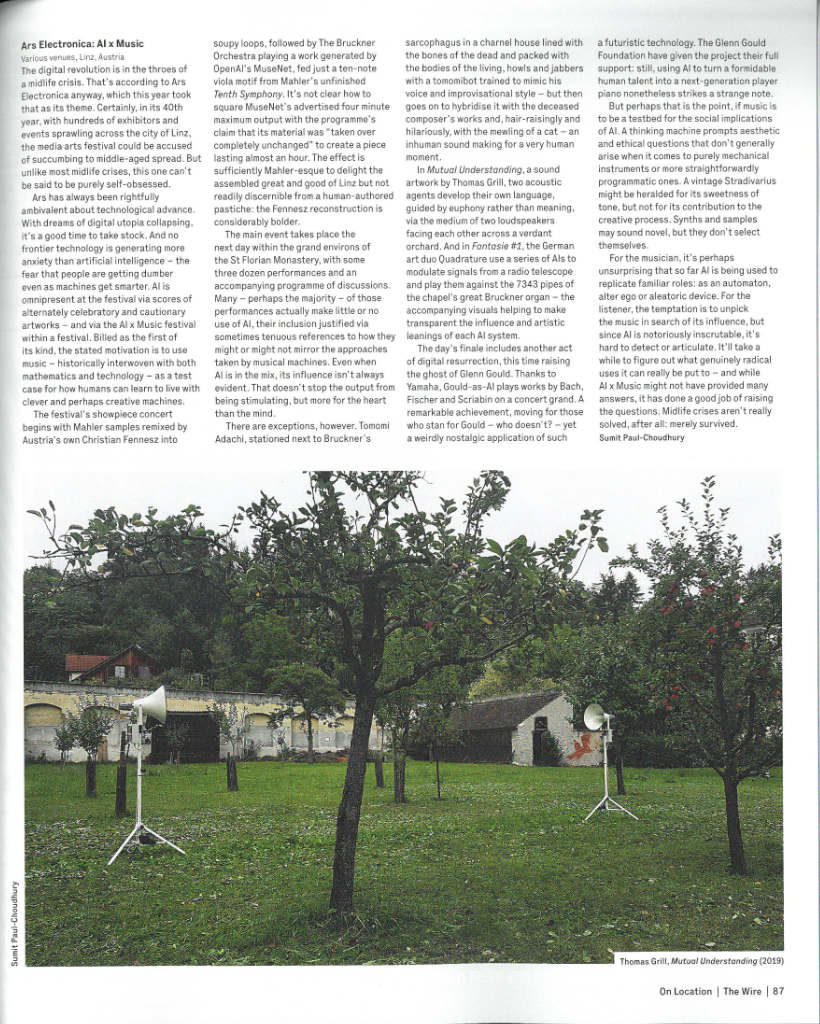
European Researchers’ Night, September 27
We took part in this year’s European Researchers’ Night, showcasing a broad range of research projects at the University of Applied Arts Vienna.
From our ongoing research, we presented a couple of exemplary positions, such as Tobias Leibetseder’s “Fragments“, Almut Schilling’s and Till Bovermann’s “CD-R(ot)“, a part of Almut’s “The Carrier” installation, Till’s take on “Data Forensics”, as well as Thomas Grill’s “Mutual understanding” and “Reference Tone“.
Mutual understanding @ Ars electronica AI x Music festival, September 7
Our installation “Mutual understanding“ was selected for the AI x Music festival, part of this year’s Ars electronica festival, taking place at the monastery of St. Florian.
We had a great outside location in the Garden of the Sommerrefektorium, even if the weather was partly rainy. The installation could withstand the humid weather.
Performances at the Auditorium: “Fragments”, October 2
The performance evening will revolve around Tobias Leibetseder‘s processual and constantly changing sculpture “Fragments“. It is in permanent development and consists of artifacts of the Rotting sounds research process. Waste, things collected, things stored and put aside, texts, pictures, data, sounds etc. are the basis of the shape-changing work. Object or exhibition, museum or archive, collection or documentation are moments of intrinsic research and decomposition, accompanying the process and resting in the distant but immediate eye of the observer.
Tobias Leibetseder‘s performance Transformation 1 is a transformation step and insight into the process of fragments. Artifacts as materials and sounds are transformed into new shapes and synthesized in a performative and concert act.
Angélica Castelló will present a performance based on recordings of her performance “Magnetic litany” from the opening evening of the Auditorium of Rotting sounds on March 29, 2019. It is connected to the permanently exhibited object “Magnetic Room“.
Elisabeth Flunger and Thomas Grill will jointly improvise on material and digital scrap. Everything seemingly valuable today will eventually transform into scraps. We take it as an aesthetic option.
October 2, 2019 19:00
Auditorium of Rotting sounds (Altes Auditorium)
University of Music and Performing Arts Vienna
Anton-von-Webern-Platz 1, 1030 Wien
As the audience will have to be limited, admission is on personal registration only.
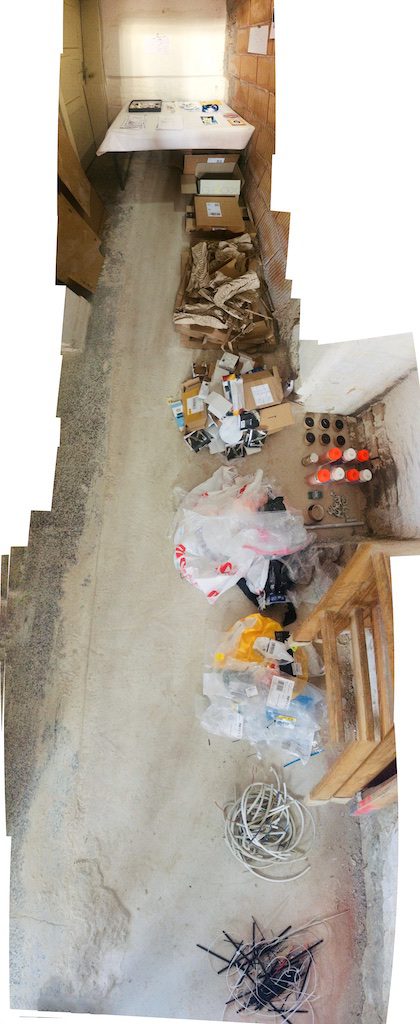
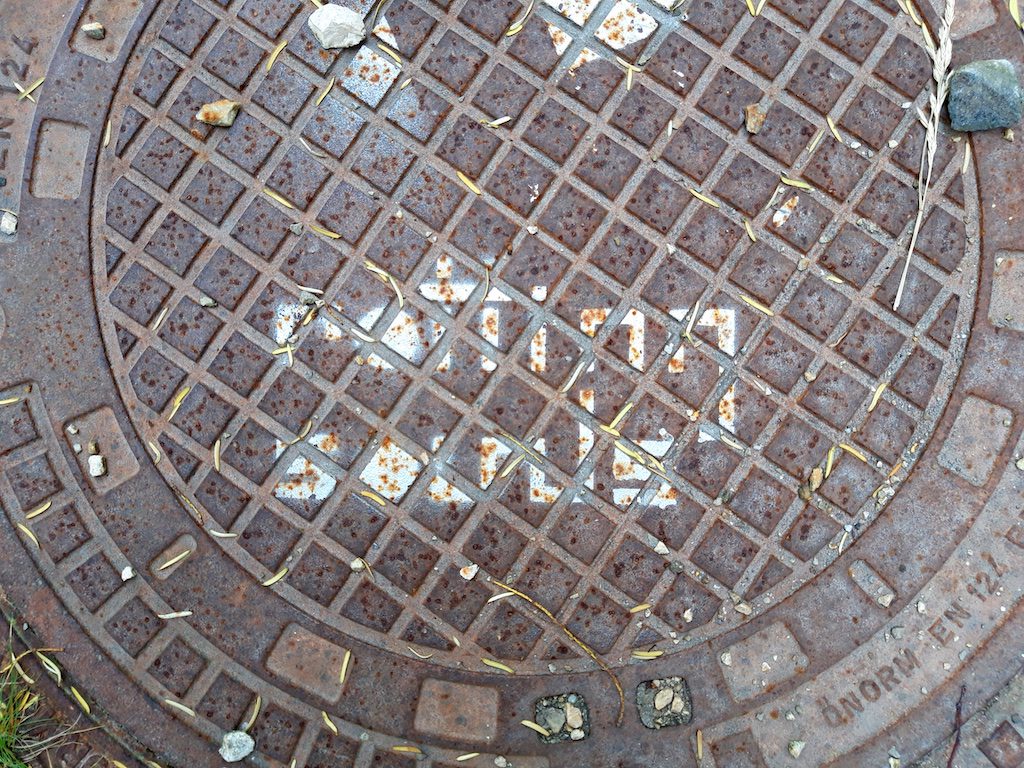
The pieces Magnetic litany 1 and 2 by Angélica Castelló have been made possible by the support of El Sistema Nacional de Creadores de Arte (FONCA).

Auditorium of Rotting sounds summer break
Due to the summer break at the University of Performing Arts Vienna, we suspend our regular opening times through July and August. Visiting the Auditorium is still possible by individual appointment, though.
Short interview on Rotting sounds
The Zentrum Fokus Forschung at the University of Applied Arts Vienna has produced a short interview with me explaining in very short the project of Rotting sounds. This was done in the context of the exhibition UNDERSTANDING – art & research at the Museum of Applied Arts in Vienna.
Exhibition opening: Understanding – Art and Research, MAK, June 27
The Rotting Sounds project has been invited to participate in the exhibition Understanding – Art and Research with a select object of our arts and research practice. We have produced the new object prototype “Reference Tone“, a variation on the existing object “Midnight Song“, exhibited at the Auditorium of Rotting Sounds.

Reference Tone is a printed representation of a pure sine tone of 1 kHz frequency at -3 dBFS volume. The encoding in 1 bit (DSD) audio is an ultra-high quality embodiment of the sound with the potential of being re-transferable into sound by optical means. Placed at a transitory spot in the exhibition, the object (and with it the embedded sound) will only stay pure and perfect for a certain time. Already at the opening, stains and scratches on the surface were noticeable, by visitors accidentally or purposefully walking over the object. Over the duration of the exhibition of one month, the audio content will transform from a “reference tone” into a sound being influenced by the context of its placement.
After the opening on June 27 at 7pm, the exhibition will run until July 28.
Museum of Applied Arts (MAK)
Stubenring 5, 1010 Wien, Austria
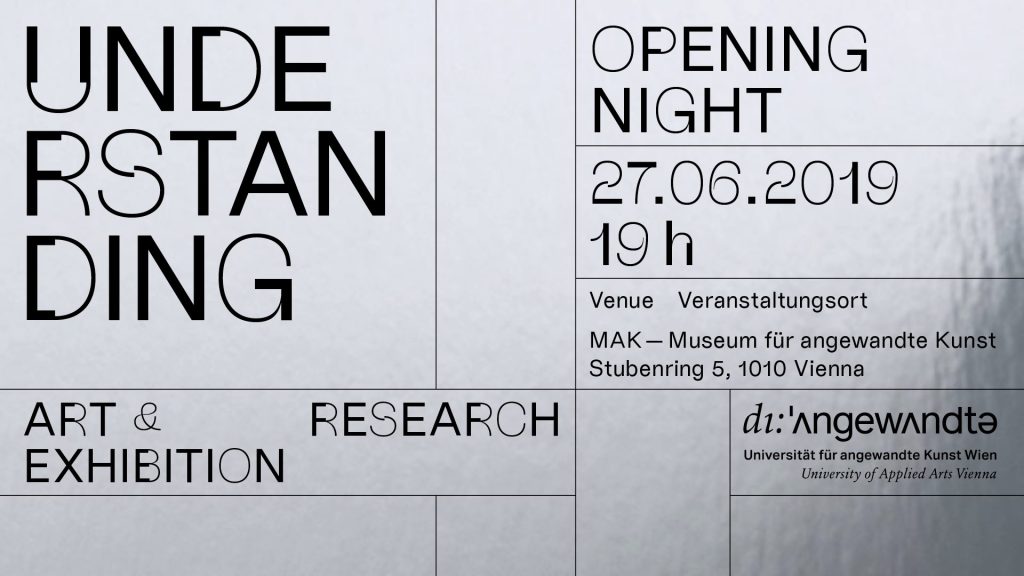
The University of Applied Arts Vienna presents exemplary approaches to its artistic research under the title UNDERSTANDING – ART & RESEARCH, it is about understanding as the very creative impulse. Through examples from research and teaching, science and art the transformation of society can be viewed, examined, sensed, discussed and experienced.
The exhibition UNDERSTANDING – ART & RESEARCH, developed by Gerald Bast, Alexander Damianisch and Barbara Putz-Plecko, now at MAK Vienna had first stations in New Zealand (Dunedin School of Art), Singapore (Nanyang Technological University Singapore), and Los Angeles (UCLA Art|Sci Center).
